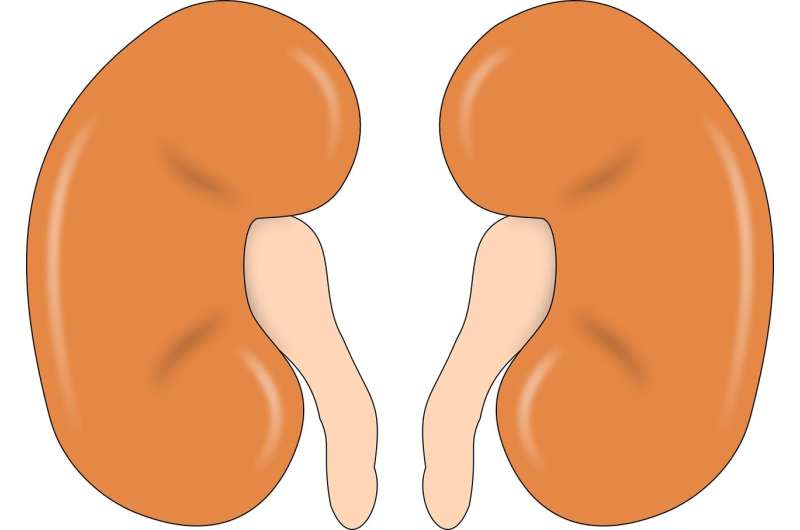Credit: CC0 Public Domain
New research indicates that non-profit/independently-owned and hospital-based dialysis facilities care disproportionately for uninsured patients with kidney failure and those who quality only for Medicaid. The findings appear in an upcoming issue of JASN.
There is a lack of information concerning where US patients with kidney failure who have limited health insurance coverage receive maintenance dialysis. Kevin F. Erickson, MD, MS (Baylor College of Medicine) and his colleagues sought to identify the types of dialysis facilities in the United States that care for "safety-net reliant" dialysis patients—those who are uninsured or have only Medicaid coverage and do not qualify for Medicare. The team examined information from the United States Renal Data System on patients initiating maintenance dialysis from 2008 to 2015.
The proportion of patients younger than 65 years of age initiating dialysis who were safety net-reliant increased from 11% to 14% between 2008 and 2015. Although 73% of safety net-reliant patients received care at for-profit/chain-owned facilities (which was slightly less than the 76% of all US patients receiving dialysis at these facilities), they had a 30% higher relative risk of starting dialysis at nonprofit/independently owned (often hospital-affiliated) facilities compared with other facility ownership types.
"Non-profit/independently-owned and hospital-based dialysis facilities care disproportionately for uninsured patients and those who only quality for state Medicaid," said Dr. Erickson. "It will be important to monitor access to care in this potentially vulnerable population as non-profit/independently owned and hospital-based facilities continue to decrease as a share of all US dialysis providers."
More information: "Safety-Net Care for Maintenance Dialysis in the United States," DOI: 10.1681/ASN.2019040417
Provided by American Society of Nephrology




















